MGT 601 Case Study: Analyzing Hofstede's Dimensions in the UAE Context
VerifiedAdded on 2023/06/04
|5
|919
|395
Case Study
AI Summary
This case study examines the application of Geert Hofstede's cultural dimensions to the United Arab Emirates. The assignment analyzes the UAE's cultural profile, focusing on dimensions like power distance, individualism, masculinity, uncertainty avoidance, long-term orientation, and indulgence. The main idea revolves around understanding the deep-seated cultural drivers within the UAE and how they compare to other cultures, particularly the United States. The study highlights challenges related to these cultural dimensions, especially in the context of business management. Key concepts discussed include individualism, uncertainty avoidance, and long-term orientation, with an emphasis on their implications for business practices. The analysis also draws parallels between the article's concepts and those found in relevant textbooks, particularly concerning power distance and individualism and their influence on organizational structures and business procedures. The conclusion emphasizes the high score of the UAE in uncertainty avoidance and its impact on decision-making processes, summarizing the business concepts discussed in relation to the article and the textbook.
1 out of 5
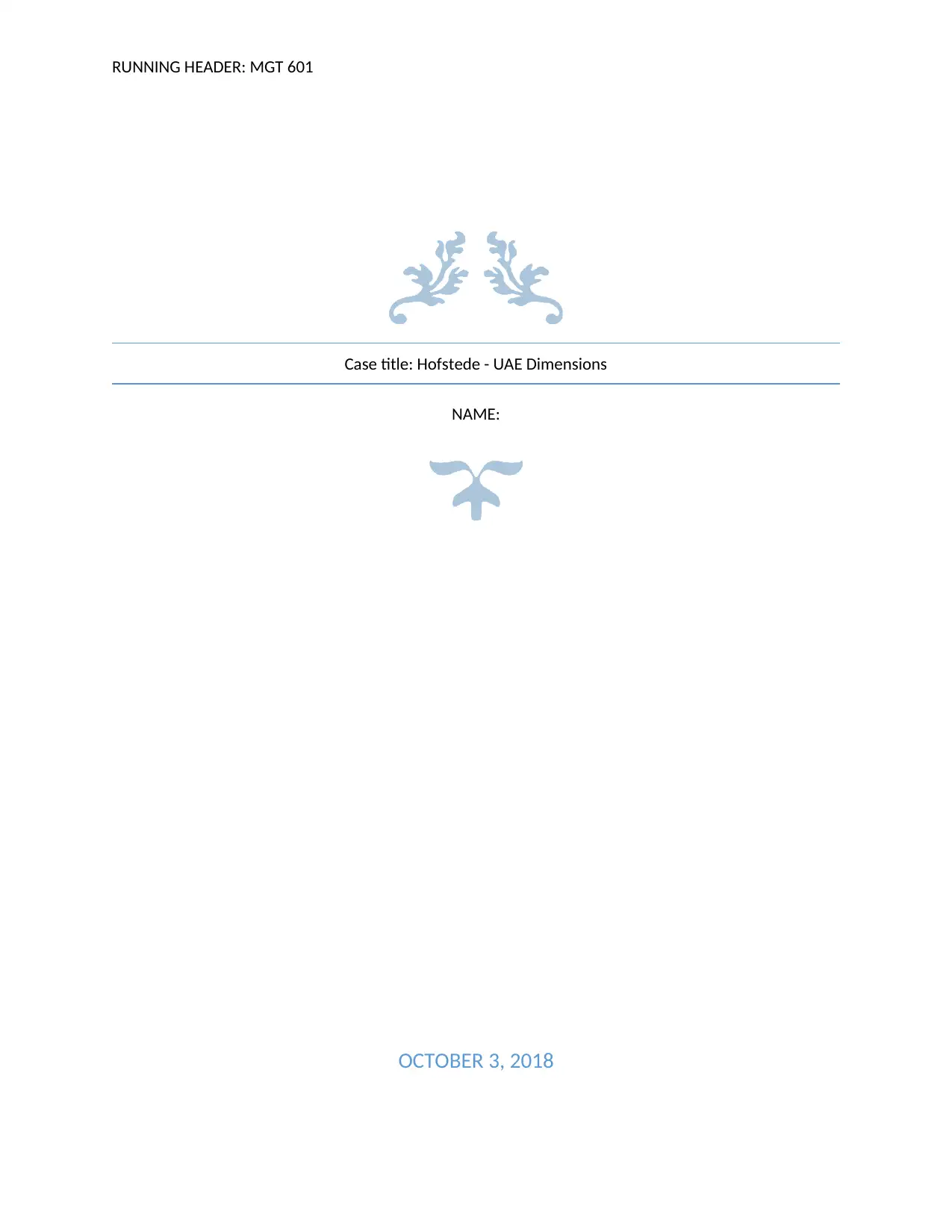
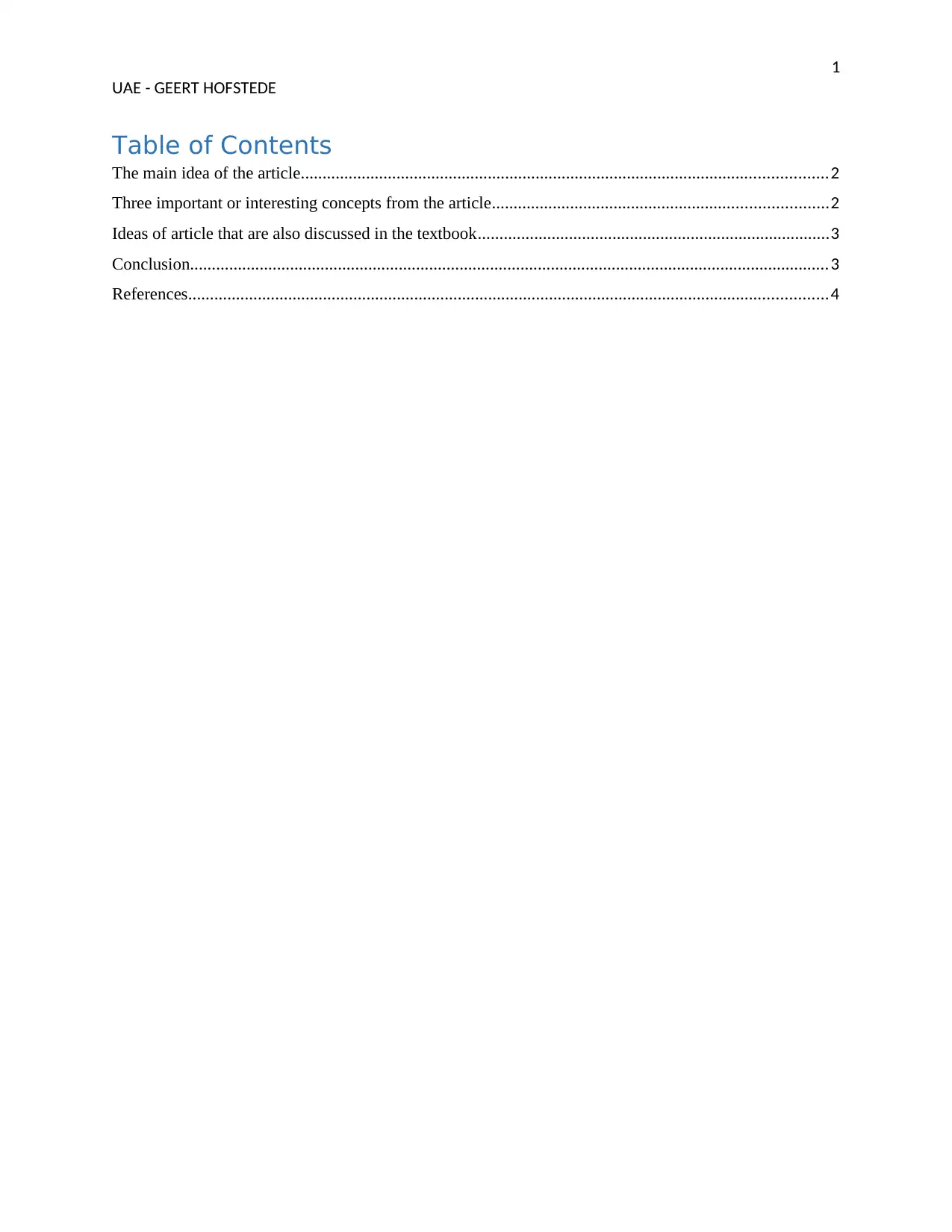
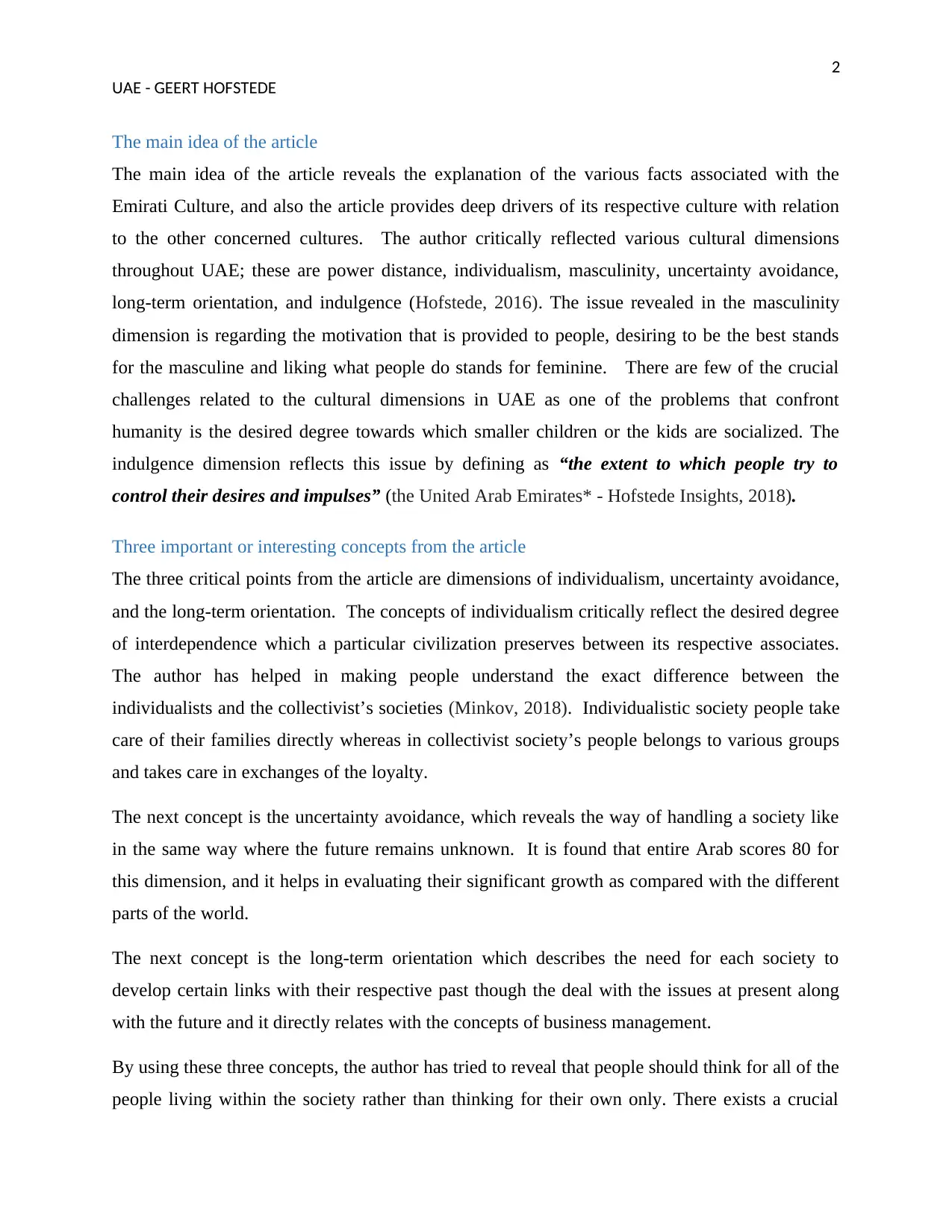

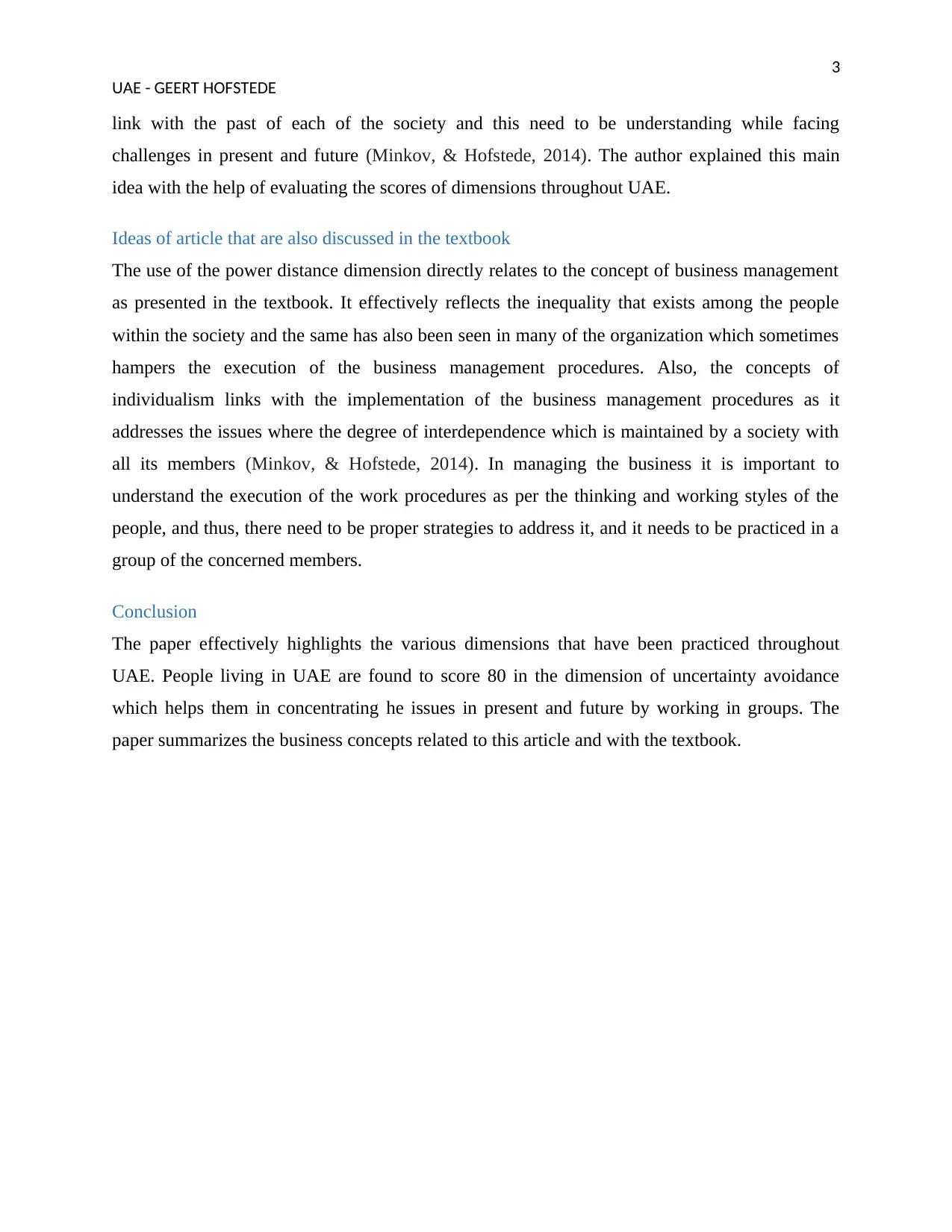
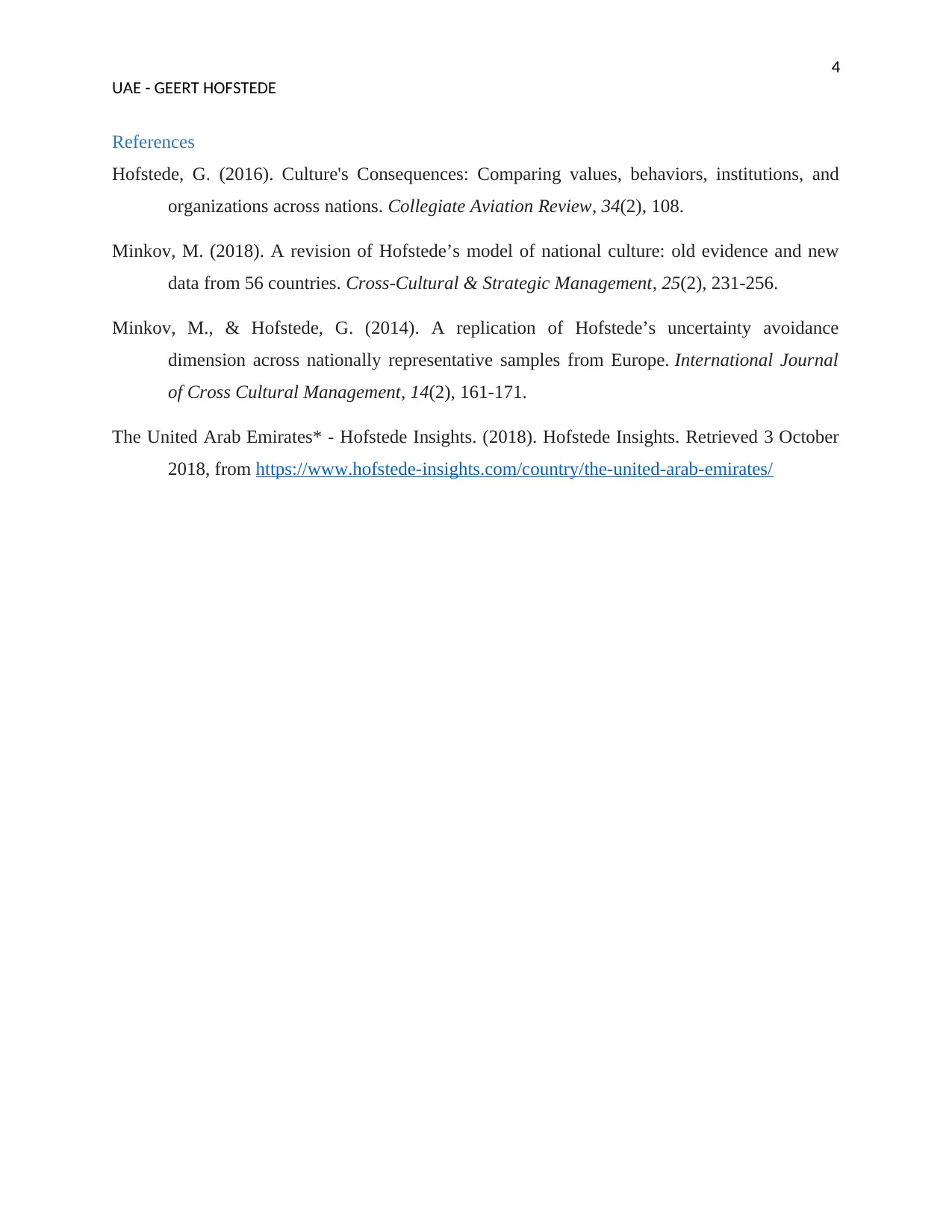





![[object Object]](/_next/static/media/star-bottom.7253800d.svg)